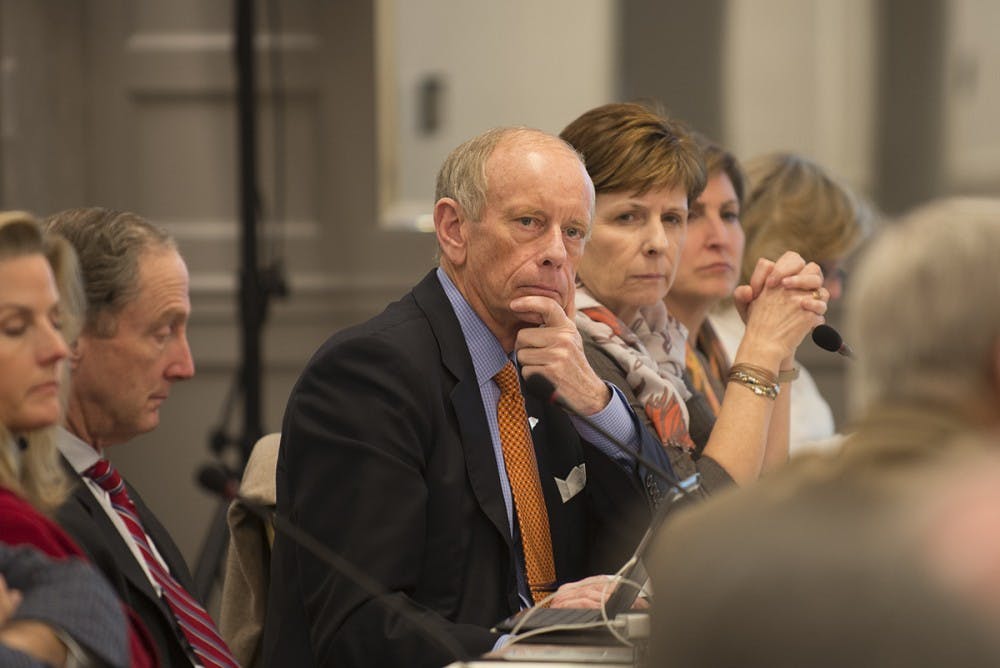The University’s Hospitality Task Force gave a report to the Board of Visitors Building and Grounds Committee Wednesday afternoon, recommending an expansion to the University’s hospitality capabilities. The report was accepted unanimously in a vote by the committee.
Patrick D. Hogan, the University’s executive vice president and chief operating officer, introduced the task force and described the progress it has made since its inception in June. He then presented some of the task force’s recommendations.
“The conclusions were that we could make use of as much as 35,000 square feet of modern, flexible conference meeting space contiguous to a new Cavalier Inn,” Hogan said. “We also believe that we should create a robust centralized event sales and planning operation to provide a streamlined services solution for faculty, staff, and external clients. This would enhance the University’s ability to hold meetings.”
During its research, the task force worked with two outside consulting firms. The Weldon Cooper Center, a University-based public interest research firm, surveyed demand for conference space and event planning services. JLL, a professional services company that specializes in real estate, advised on the University’s hospitality holdings.
The task force report suggests that the new Cavalier Inn — replacing the Cavalier Inn that will be demolished after final exercises in May 2018 — will have up to 300 rooms and up to 35,000 square feet of conference meeting space. It also recommends the existing Inn at Darden be replaced with a full-service hotel with up to 225 rooms and 12,000 square feet of meeting space.
The task force also recommended that the University develop a plan to address the hospitality needs of University Hospital patients and their families. These accommodations would service both short- and long-term patient needs and would ideally be installed by the end of the year.
Hogan noted that while the committee voted to accept the task force’s report, the projects are not approved. The vote simply authorizes the task force to continue studying how the University can broaden its conference-hosting offerings. The recommendations will need to be developed further before the Board can vote on a plan of action.
Going forward, the task force will continue to survey how the University can finance the expansion.
“In terms of next steps, we have some work to do,” Hogan said. “We need to look at financing models that consider a mix of philanthropy, debt and the possibility of public-private partnership. We need to see what provides the best opportunity for the University.”
The task force will also examine what possible spillovers could result from the proposal, including parking, other projects in the Ivy-Emmet corridor and labor concerns.
“Something that really needs to be taken into account for everyone is the labor impact,” said Robert D. Hardie, the Building and Grounds Committee vice chair. “There just aren’t enough qualified people to provide the level of service. You really have to have a labor plan in place.”
At the conclusion of the meeting, Rector Frank M. Conner III said that he hoped to see a vote on the hospitality proposals as soon as possible.
“Hopefully [it will happen] during our March meeting, or if we’re not quite there yet, June,” Conner said. “We want to move this along. We’ve been studying it for a while.”







